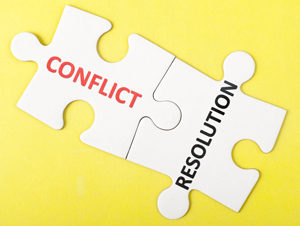
A parent complains about a student’s test grade. A colleague is unhappy about a comment you made at the last staff meeting. An administrator questions the way you handled a recent email exchange with a parent.
 In addition to facing a classroom full of students each day, teachers have to contend with relationships — and conflicts — with parents, colleagues, bosses and even school board members and the public. Confrontations can be stressful, and sometimes unavoidable.
In addition to facing a classroom full of students each day, teachers have to contend with relationships — and conflicts — with parents, colleagues, bosses and even school board members and the public. Confrontations can be stressful, and sometimes unavoidable.
“You have to come to the realization that you cannot please everybody all the time,” said Candace Alstad-Davies, founder and owner of A+ Resumes for Teachers and a career coach for teachers.
Although the specifics of each situation will differ, there are some strategies you can use to defuse conflict and make it less stressful. Experts suggest you start by asking yourself a number of questions:
What is the conflict really about?
Frequently, when clients tell Alvah Parker, a career coach and owner of Parker Associates, about a conflict at work, they discover after discussing it that the real problem lies below the surface. Perhaps a parent is complaining about a test grade, for example, but the real issue is that the parent is frustrated that the student doesn’t seem to have a clear idea of what to study.
Sometimes, too, the real problem is not the message but the way it was delivered: A colleague sounded impatient when asking for a favor, for example, or a teacher was the last person on staff to be told about an important new initiative.
It’s important to understand the real issue so you can address it rather than simply complain about the first comment that made you upset.
What is the other person saying?
“Listen to the other person carefully and really try to understand from that person’s point of view what’s going on,” Parker said. Sometimes it turns out the listener didn’t really understand what the other person was asking — and the conflict isn’t that large after all.
How does this issue affect your success at your job?
When determining how to respond to a conflict, it’s important to consider how your response will affect your ability to do your job.
“You have to do your job, and you know what your job is: It’s to give the children in your classroom the very best education you possibly can,” Alstad-Davies said.
This is a good starting point for your response to any conflict:
- Will changing a student’s test grade in response to a parent’s complaint diminish the student’s education?
- Will spending time on a contentious email exchange take away energy and effort you should have spent on your classroom?
- Does the conflict between you and a colleague mean you may not collaborate as well to help students?
Finding this bottom line can help you determine when to focus on a conflict, figure out how to resolve it — or decide whether it’s time to let it go.
Categorized as: Tips for Teachers and Classroom Resources
Tagged as: Mid-Career Teacher, New Teacher, Professional Development, Teacher-Parent Relationships
